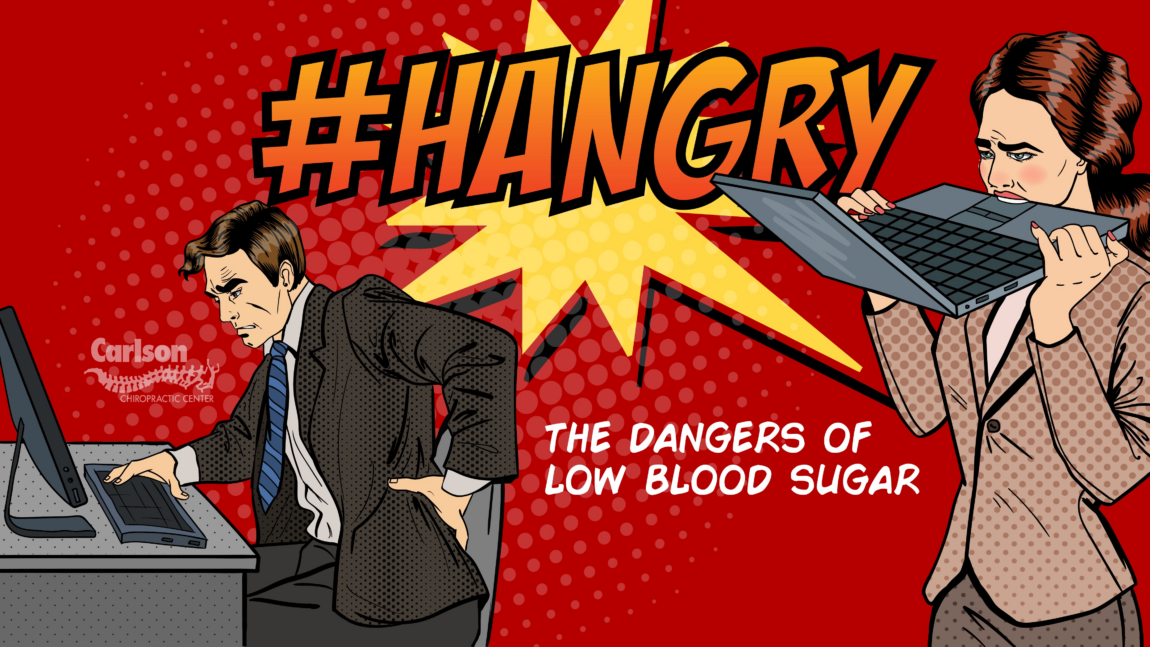Do you crash when you go too long without eating, losing energy and becoming “hangry?” Hanger (hunger plus anger) is that explosive combination of low blood sugar and extreme irritability that turns a normally nice person into a nightmare. People joke about being hangry, (insert Snickers joke here), but when it happens regularly, it means your body and brain are in a perpetual state of alarm. This constant stress raises inflammation and accelerates the degeneration of the brain. In other words, being chronically hangry ages you too fast. The low blood sugar that triggers “hanger” sends your body into an emergency “fight-or-flight” mode, causing you to snap at loved ones or fly into a rage because you can’t untangle your earphone cords. This constant stress ages the body and brain.
Low blood sugar also raises an immune messenger called IL-6, which triggers inflammation that destroys tissue. If you have a chronic or autoimmune condition such as Hashimoto’s or rheumatoid arthritis, the inflammation from low blood sugar can trigger flare-ups that destroy tissue, worsen symptoms, and advance your condition.
Autoimmunity means an overzealous and imbalanced immune system is attacking and destroying tissue in the body. Your body is attacking itself. Many people have autoimmunity but have not been diagnosed. Low blood sugar can worsen autoimmunity and speed the destruction of tissues or glands in the body.
The low blood sugar from being hangry deprives the brain of fuel and impairs brain function. This speeds up degeneration because your brain needs energy. It’s like you are turning into a zombie and eating your own brain matter. That sounds like it is out of a science fiction novel, but in essence, that‘s what is happening.
Brain-related symptoms of low blood sugar include:
- Irritable and easily upset
- Lightheaded
- Fatigued
- Feeling shaky and jittery
- Agitated and nervous
- Eating gives you energy
- Poor memory, forgetfulness
- Blurred vision
- Lack of appetite or nausea
- Energy crash around 3 or 4 p.m.
- Wake up anxious around 3 or 4 a.m.
Chronically low blood sugar also ages the brain by triggering autoimmune flares in the brain speeding the brain degeneration process.
A few common symptoms of brain autoimmunity include fatigue, “crashing” after too much stimulation or exertion, brain fog, memory loss, anxiety or depression disorders, autism or ADHD symptoms, and poor balance.
If you suffer from any brain-related symptoms, preventing low blood sugar is crucial.
Tips on avoiding low blood sugar or Zombie attacks
If you want to function optimally and slow the aging process, make sure to avoid getting “hangry.”
Work on building your blood sugar muscle. Tips include:
- Never skipping breakfast or other meals.
- Never eat a carbohydrate without a protein. For example, if you have an apple also have a handful of pecans.
- Avoid too much sugar and processed starches.
- Eat plenty of vegetable fiber and healthy fats.
- Minimize caffeine.
- Eat small meals every two to three hours. This will help stabilize blood sugar.
- Avoid foods to which you are sensitive (such as gluten and dairy for many people). Ask our office about food sensitivity testing.
In addition to diet, a number of herbal and nutritional compounds can also help bring blood sugar to normal levels and balance immune and brain health. Identify any other reasons for blood sugar dysregulation through laboratory testing. Remember, we are always looking for the root cause of our issues. We don’t want to just chase symptoms.
Blood sugar balance is a foundational issue that has to be taken into account when you are working on getting and staying healthy. Let’s get proactive about our health and a great first step is stabilizing blood sugar.

